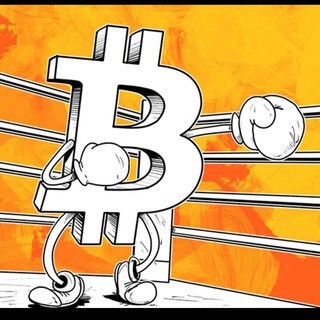Back
Markets
Aug 23, 2023
Crypto News Catch-Up: What Happened to FTX's Money?

Bitcoin Macro

#Crypto news can be quite full on–let's go in-depth and add clarity. To start off, what happened to #FTX's money?
Every day, there is another new development in the turbulent hashtag#cryptocurrency industry, but it’s sometimes overwhelming to try to catch up with the latest updates. As we move towards the end of summer, we wanted to offer a roundup of some of the most important stories in the last few weeks and months. We will be posting one section a day!
Here’s what’s coming up:
the legal troubles of hashtag#FTX founder Sam Bankman-Fried, analyzing the bankruptcy proceedings for reimbursing FTX customers
investigations and allegations plaguing top exchange hashtag#Binance.
the opaque acquisition of Huobi and Poloniex by TRON's Justin Sun along with the questionable launch of stablecoin TUSD
the Genesis and Gemini lawsuits against Barry Silbert's Digital Currency Group
updates on major crypto bankruptcies
developments in resolving historical exchange hacks
an exploit hitting decentralized exchange Curve Finance
massive breaches at bridge protocol Multichain
We hope this helps readers who would like to catch up with some of the key events rocking the crypto sphere amid ongoing market uncertainty. Let’s get started with the biggest and most notorious news, FTX and SBF.
The stunning collapse of cryptocurrency exchange FTX has led to ongoing legal troubles for its founder Sam Bankman-Fried. Once hailed as a wunderkind of crypto, Bankman-Fried now faces accusations of fraud and witness tampering that led to his bail being revoked. As he awaits an October criminal trial from jail, FTX's bankruptcy trustees labor to recover assets for defrauded customers, but progress is slow and lawsuits pile up.
After FTX filed for bankruptcy in November 2022, Sam Bankman-Fried was initially released on bail to await trial at his parents' California home. However, prosecutors soon accused Bankman-Fried of leaking an ex-girlfriend's diary to the media in an attempt to influence her testimony. This apparent witness tampering has led a judge to jail Bankman-Fried pending his criminal trial.
Prosecutors later unveiled new charges that Bankman-Fried illegally spent $100 million in FTX customer funds on political donations. Some contributions were made through straw donors to disguise the source. If convicted on all counts, Bankman-Fried faces up to 115 years in prison. While he has pleaded not guilty, the steady accusations paint an increasingly unflattering picture of illegal behavior.
Bankman-Fried still owns assets like Robinhood shares that could be seized and used to repay FTX creditors if convicted. However, his expected criminal defense costs will likely total tens of millions of dollars based on similar white-collar cases. This may leave less for FTX victims even if he is found guilty. For now, Bankman-Fried remains in jail awaiting trial for conspiracy, fraud and illegal campaign finance allegations.
While Bankman-Fried awaits trial, FTX entered Chapter 11 bankruptcy in Delaware and is working to gather assets owed to its millions of customers and creditors. However, nine months into the proceedings, progress has been painfully slow.
FTX has located $6.1 billion in assets so far, $400 million more than initial estimates. But creditors say the lack of detailed financial reporting makes it impossible to fully track or audit these efforts. Onerous legal fees are also eating up a sizable chunk of recovered assets.
Over $200 million has been spent on professional fees so far, equating to almost 3% of money owed to FTX users. Creditors argue stronger oversight is needed on legal billing, with pay tied to successful asset recovery rather than extravagant hourly fees. Converting remaining assets to tradable crypto tokens could also allow quicker payouts to victims.
Until major disputes with lenders like Genesis are resolved, the ultimate bankruptcy costs and creditor payouts remain uncertain. FTX proposed settling Genesis' $2 billion claim for just $175 million, sparking backlash. With legal challenges mounting, reimbursing FTX customers could take years via bankruptcy proceedings.
To potentially accelerate payouts, FTX's restructuring plan includes launching a new offshore exchange "FTX 2.0" and distributing equity in it to creditors. However, crypto experts argue successfully reviving FTX faces tall hurdles.
FTX would need to rebuild trust after its spectacular failure, reapply for licenses, secure new banking partners, and retain key talent. Most skilled crypto developers have already moved to FTX's rivals. And creditors may be wary of equity in a newly relaunched exchange given FTX's reputational damage.
While some investors are interested in resurrecting FTX, concrete revival plans are lacking so far. Between the brand toxicity and lack of infrastructure, analysts say an FTX restart remains a long shot despite creditors' optimism.
As FTX's bankruptcy drags on, Sam Bankman-Fried will soon face his day in court to answer for alleged fraud and illegal campaign donations. Regardless of the trial's outcome, repaying FTX customers and creditors will likely take years of litigation and asset seizure efforts. Tighter controls are needed on legal fees to avoid excessive costs. While relaunching FTX is possible in theory, major practical barriers around trust and infrastructure must be overcome for any revival plans to succeed.
Bitcoin Macro
Share this post









